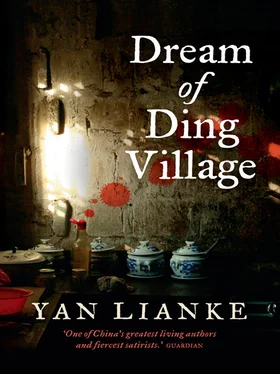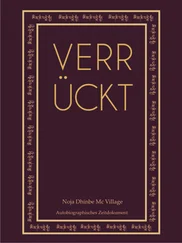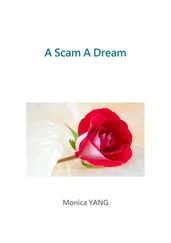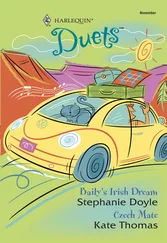Wheat died and grass withered. The last remaining leaves curled up and died.
On the east side of Ding Village, the Zhao family lost their daughter-in-law. She died at the age of twenty-nine, just a few days after coming down with a fever. Burned alive and parched to death, she left behind a three-year-old son.
On the west side of Ding Village, forty-year-old Mr Jia had always been careful about his health. He knew that he had the fever, and that his body had lost its ability to fight back, so he was always on guard against colds and flu, cuts and bruises. He was meticulous about what he ate, and avoided anything that might make him ill or upset his stomach. But it was a trip to the latrine that did him in. He had walked through the blazing sun and squatted in the cool shade of the latrine, but the combination of extreme temperatures caused him to catch cold. For a few days, he had a runny nose and a slight headache. Then his nose stopped running, but his fever flared up, and left him with a raging headache. Unable to stand the pain, he smashed his head against a wall and died.
They found him lying in a pool of blood, with his brains bashed in.
In the village centre, a pretty young girl who had married outside the village was visiting her family. Little Min had been feeling fine, but a few days into her visit, her whole body broke out in an itchy, angry rash. Without a tear or a word of complaint, she told her parents she’d stayed long enough, and that it was time to go back to her husband’s house. Then she packed up her things and left. She was halfway home when she hung herself from the branch of a persimmon tree.
Ding Zuizui, known to everyone as ‘the Mouth’, died because of a story. One day, as he was standing at the crossroads talking to another villager, a man who also had the fever, the Mouth started telling this story:
‘Once there was a minor official who got a big promotion, so he went home to his wife and told her to make him a feast to celebrate. After she’d warmed the wine, cooked the food and laid it on the table, she asked her husband: “Now that you’re a big official, does that mean your thing is bigger, too?” “Sure,” he said. “I’m bigger all over.” But later that night, when they were in bed, she noticed that his thing was as tiny as ever. “If you’re such a big official, how come it feels so small?” she asked. So the man explained that when an official gets a promotion, so does his wife. “My thing’s a lot bigger now,” he told her, “but so is yours, which is probably why you couldn’t tell. . Your thing’s too huge!”’
When the Mouth had finished, he threw his head back and roared with laughter. It was an old joke, one of his favourites. But the other man didn’t even smile. He went home, grabbed a kitchen cleaver, and came back to confront the Mouth.
‘Everyone is fucking dying and you’re still making jokes?’ the man shouted. ‘What the hell are you so happy about all the time? If you want to laugh, go laugh in your grave!’
The man attacked the Mouth with the cleaver, chopping until he was dead.
People were dying in droves. They were dying like dogs, or chickens, or ants crushed underfoot. There was no wailing or crying or pasting up of funeral scrolls. People were buried the same day they died. Coffins were prepared in advance, and graves were dug while a person was still alive. With the weather so hot, if you waited a day to dig the grave, the body would start to rot, so coffins and graves were kept on standby for speedy burials.
By the time the fever erupted, the sick villagers weren’t living in the elementary school. They had left the school and gone back to their homes.
The reason they left had nothing to do with the fever, and everything to do with a decision by the higher-ups to cancel their food subsidy. Their monthly subsidies of grain and cooking oil had been revoked. They found out about it only after a few of the younger residents went into the county to pick up the goods and returned at noon, empty-handed.
‘Ding Village isn’t getting any more help from the government,’ one of the young men announced. ‘They said we’re not getting anything from now on, not even a pound of flour.’
Jia Genzhu, Ding Yuejin and the other residents were outside relaxing in the shade, clustered around a television set they had rigged up in the schoolyard. When they heard the news, they stopped watching television and turned to stare.
‘Why would they do that?’ someone asked.
‘Because they think we’re the ones who broke into Ding Liang and Lingling’s tomb and stole their coffins. That’s why they’re pulling the plug.’
All eyes turned to Jia Genzhu and Ding Yuejin. Everyone knew that the order must have come from my father, because he suspected the pair of robbing his brother’s grave. The residents of the school were counting on their two chairmen to go and talk to my father and straighten things out, to tell him that they had nothing to do with the grave-robbing and coffin-filching. But the two men exchanged a guilty look and said nothing.
Several days later, everyone moved out of the school and returned to their homes.
On the day of the move, Grandpa was working in his vegetable patch near the school gate. It was a tiny plot, the size of a few straw mats, behind the back wall of his house, right next to my grave. Using two buckets on a shoulder pole, he drew water from the school well and brought it back to the plot where he grew leeks, chives and miniature cabbage. The water was quickly swallowed up by the thirsty soil. It was like pouring water into a ravine, or into the sand dunes of the dried-up Yellow River path. Before the drought, four trips to the well had been enough to water his tiny garden, but now it needed seven trips, carrying fourteen buckets of water.
He had just finished watering his plot when he noticed Jia Genzhu and about a dozen residents of the school standing by the gate, watching him. They carried bedrolls and suitcases, bowls and chopsticks, fans and straw mats and assorted belongings. All of them were staring at him as if he were the man personally responsible for taking away their food subsidy and driving them from the school. All eyes were on Grandpa, accusing him.
But as he stood in the vegetable patch with his empty buckets, staring back into that sea of faces, Grandpa seemed less intimidated than before. Maybe he’d let them down in the past, but they’d let him down, too. He’d once been in their debt, but now he owed them nothing. Maybe they’d once been friends, but now they were like strangers from another village, and he had nothing to say to them. Grandpa knew that some of the residents — not just one or two of them, but many — had broken into his son’s grave. They’d destroyed a tomb and stolen two coffins, the likes of which hadn’t been seen around here for 100 years, and wouldn’t been seen for another 100. But that was fine with him, because it meant that they were even. The debt he owed Ding Village had been repaid in full.
Now he could face the villagers. He could view them as they viewed him. With cold, silent stares.
Jia Genzhu ended the standoff by spitting on the ground, like he was trying to dislodge something from his throat. Then he led his people away.
As they walked towards the village, they kept turning around to throw dirty looks at Grandpa. Their looks seemed to say that Grandpa owed them, that he was still in their debt, and that a plundering of his son’s grave wasn’t enough to set the accounts straight. They had something coming to them, and they wanted payback. Grandpa stood in his vegetable plot, thinking about those dirty looks and wondering what they meant. What more did they want from him? What else could he do? After they’d desecrated his son’s grave, he hadn’t complained or accused or said a single nasty word. Wasn’t that enough for them? What more did they want?
Читать дальше












